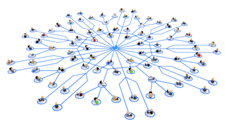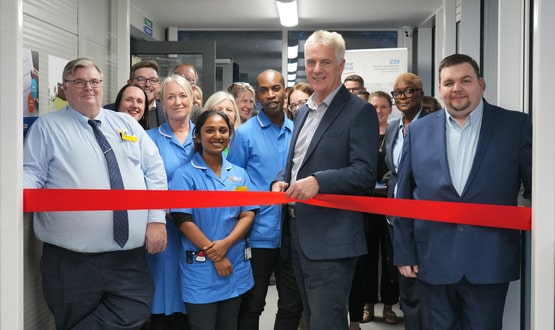Hub for spoke
- 22 April 2010
 Last summer, Yorkshire and the Humber Collaborative Procurement Hub developed a framework deal for digital dictation, voice recognition and out sourced transcription.
Last summer, Yorkshire and the Humber Collaborative Procurement Hub developed a framework deal for digital dictation, voice recognition and out sourced transcription.
By the end of March 2010, it had already saved the NHS at least £200,000 in procurement costs – and almost certainly a great deal more. However, there are concerns that it could freeze out new entrants and stifle innovation.
The deal
As framework deals go this was pretty routine, with the hub developing specifications, assessing suppliers, negotiating on price and finally approving a list of six digital dictation and voice recognition suppliers and one out source transcription service provider.
The list means a quicker and cheaper procurement for trusts but still allows them to develop their own specifications. Routine it may be – but the deal could still change the landscape for NHS trusts.
Jonathan Winters, procurement project manager for the East of England Procurement Hub explains: “The benefits of these systems are quite apparent. The 18 week referral to treatment target – and now the two week referral to treatment in oncology – are very hard to meet, and when you can identify a bottle neck you need to work towards finding a solution.”
Digital dictation is providing part of the solution in many trusts, reducing reporting times from days and weeks to a day or two. Given that the NHS really needs to invest in this technology, it was an obvious area for collaboration. “The procurement hubs are all about collaboration,” says Winters. “So it makes sense for us to collaborate and develop multi-hub frameworks on some things.”
This is exactly what happened. East of England and Yorkshire and the Humber hubs joined forces to develop a framework that can be used not just in their regions but across the NHS in England.
“Each of the regional hubs covers around 40 trusts,” Winters explains. “Potentially this framework could cover hundreds of trusts. And because of that we were able to significantly reduce the costs of the hardware and the software licenses for trusts using the framework.
“The three trusts in the East of England that have used this framework so far have saved over £200,000 on the cost of the hardware and the licenses alone.” That figure does not include the management time saved by a quicker and simpler procurement process.
Add in at least five more trusts that have used the framework in Yorkshire and Humber, and those in two more regions that are looking at the framework right now, and the savings start to mount.
Systems in play
Digital dictation is far and away the most used aspect of the framework. Winters says: “I think that over time all trusts will take digital dictation, including the hardware and the workflow software. For one thing, it is going to become harder and more difficult to buy analogue equipment such as tapes.
“I think very few will go for wholesale speech recognition solution. It is more expensive and there is not so much faith in the quality — although it is a good product. We are much more likely to see trusts taking on digital dictation and then moving to speech recognition for specific departments.” Out sourced transcription is likely to be used only by those trusts unable to recruit secretaries, he adds.
James Kippenberger, UK sales director of Big Hand, which has won several of the contracts signed under the framework, predicts that it will be good for digital dictation market as a whole. “It has put down a marker in the sand that this is important,” he says. “It’s made it much easier for trusts to go through the procurement process.”
The experience so far is that trusts are using the framework in different ways. Chris Hart, chief executive officer of SRC says: “Some trusts are doing a ‘mini tender’ where they specify their needs around system integration and the number of users, for example, and then invite everyone on the list to apply.”
This is shorter than the full OJEU tender required by trusts not using a framework agreement – by, say, six months rather than 12 — but still fairly onerous.
Hart suspects that trusts are taking this route because they are not familiar with the market and not sure which supplier will best suit their needs. “It’s early in terms of the contract,” he says. “It is not clear to some trusts which of the six suppliers they might want to take forward in a large deployment.”
He adds: “The other approach we are seeing is a trust inviting one or two suppliers that they think best suit their needs and going directly to a negotiation for specifications. And that can be a lot quicker.”
“Our experience has been very good,” says Alistair Graham, sales and technical director of Voice Technologies, another of the approved suppliers. The framework deal has put the business case for investing in this technology firmly into the NHS, he says. “Although we still need to provide evidence of the return on investment.”
Like SRC, Graham says some trusts have honed the framework into a much “slicker and quicker” procurement process. “Some have been very thorough and yet very quick,” he says. “But others are still taking months and months.”
Staying in the game
For those suppliers left out in the cold, things are not looking so rosy. Lexacom, a small player with software that was developed by GP Andy Whitely, did not make the short list. The company he created had been moving from supplying GPs to larger deployments in primary care trusts and NHS trusts.
“I am not against the idea of the framework agreement,” says Dr Whitely. “But this deal is set up for the next four years and gives a possible unfair advantage to those that are on it.” Lexacom, for example, has developed new software since last summer and now there is no chance for it to be evaluated. “Potentially it will stifle innovation,” he warns.
Not so, says Winters. There is certainly room within the framework for innovation, he says, with contracts specifying that a trust must have the latest updates.
“There is nothing that says this is the exclusive channel that trusts must use,” he adds. “If new products come out it is in our interest to look at them. We may not create a new framework but we are always prepared to look at new things.”
This article first appeared as part of our recent special report on Digital Dictation.




